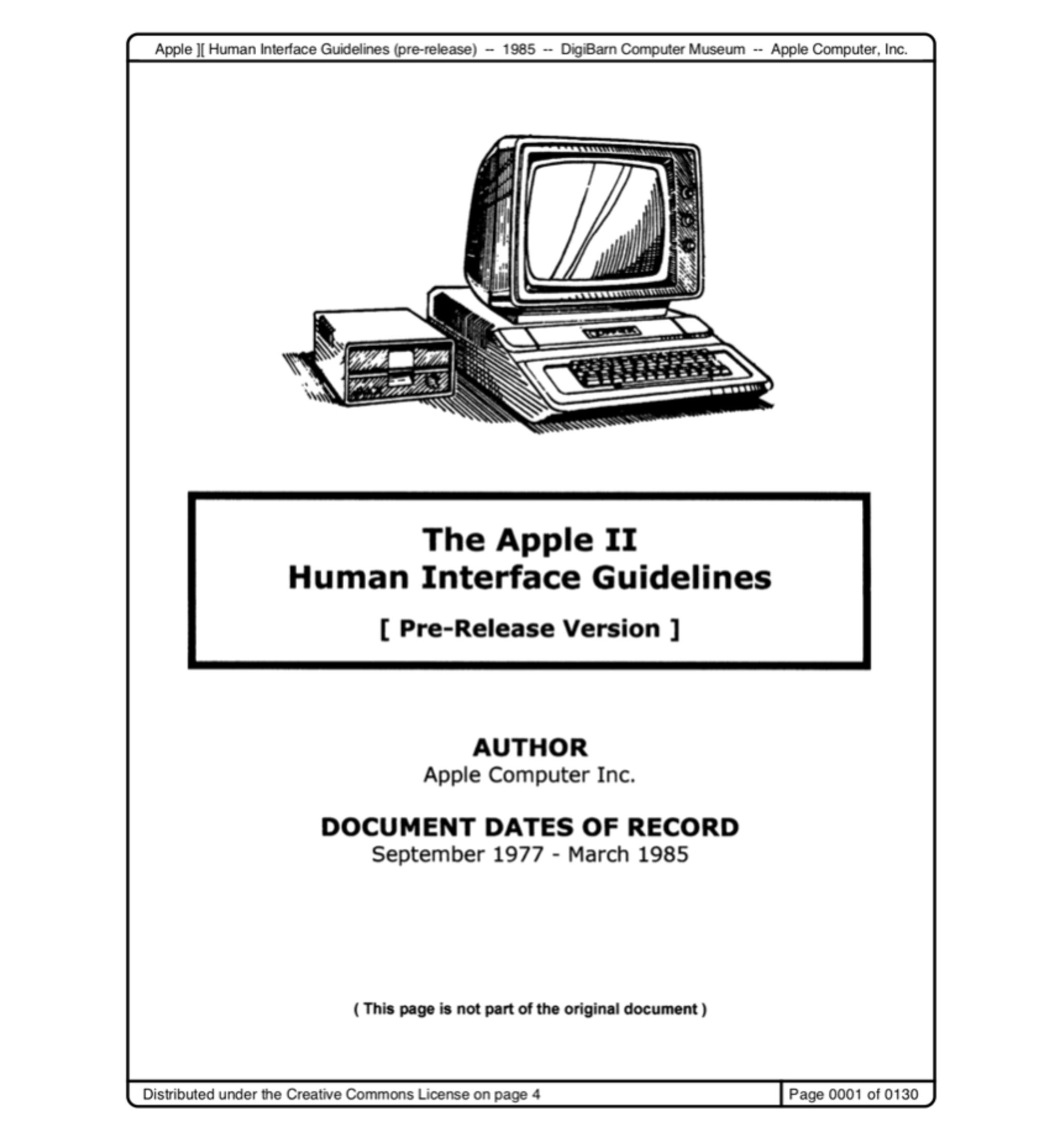Genuine question.
I know they were the scrappy startup doing different cool things. But, what are the most major innovative things that they introduced, improved or just implemented that either revolutionized, improved or spurred change?
I am aware of the possibility of both fanboys and haters just duking it out below. But there’s always that one guy who has a fkn well-formatted paragraph of gold. I await that guy.
they invented the hardware-based walled garden. an entire ecosystem of shit relying on them alone
Have you heard of game consoles?
Apple is good at making existing tech usable by people who don’t have time to bother learning the new tech.
Hard disagree. Android user here. The number of times if had to show iPhone users how to use their shit is annoying.
Workflows agree no better on a fruit phone than an Android device half the price.
I’ve gotta be honest, it feels like it takes several more steps to do anything on iOS than on Android. Finding anything is a chore, it’s slow in favor of long animations, and settings are so far out of the way or non-existent, that it’s so difficult to troubleshoot issues.
Personally, I don’t think iOS is any easier than Android, it’s just that Apple strips away everything that your grandparents don’t need, but that regular users could really benefit from.
Oh yeah for sure, like actually disabling wifi is a 3 step process, wtf. If you’re a fan of what android can provide, you’ll probably run into many grievances on an iphone. But here are a few examples I can think of what iphones do better or easier than any android:
-
iCloud/iTunes phone backups: either automatically through the cloud or manually using a pc, but taking a full backup and restoring them has always been easier. Using iCloud is by far the easiest, for a price ofcourse, a full backup continuously safe from loss or damage. Same with your pictures and personal data. Google and samsung now provide similar services, but apples’ is more complete and hassle free. They also provide a fully free temporary backup for 30 days so you can sell your current device with no data loss at all.
-
Transfering to a new iphone: kind of the same as backups but the transfer process is at least half the amount of steps and is so much more beginner friendly than android, samsung takes a strong second place with smart switch and oppo a third with clone phone. But apples is without fail the most complete.
-
Interdevice connectivity: also mostly an icloud advantage but if you have more than one apple device or trying to send data to another iphone, airdrop and icloud have always been the most seamless. Other android services are coming close, but nothing can beat the apple ecosystem, at least not yet.
-
Basic stability: the optimization of memory and cpu usage has greatly improved the stability and longevity of iphones, by having very strict rules on what 3rd party apps can do on the device. Also increases the amount of performance they get out of the phone as a whole.
-
App store: has always been much less garbage and malware. By having a strict review process I’ve never seen an application doing to a persons phone what some android apps are still doing to this day. Tricking the user into allowing full device control some apps litter phones with ads, spam and malware, bad form Google.
For the record, I hate apple as much as the next lemming, but I acknowledge what they to well. And what they do, goddamnit they do it well. People will always be confused by technology, but apple does such a good job making very complex functionality accessible to the masses. Functionality on literally any other platform would require extra software, extra configuration, extra effort.
-
Now, do you think that’s because iOS is inherently worse than Android, or because Apple have been more successful at targeting people who don’t want to fanny about with their tech? Not trying to perpetuate a Android/iOS war, btw. I recognise that choice is good, and am happy to fuck about with the Android things I need to use at work.
I think Apple knows its customers really well, and caters to them in a way that winds up feeling exclusionary to a lot of folks that have a hard preference for Android for mobile, or Linux or Windows for PC. Apple builds products and makes designs that meet the needs and wants of the people that use their products, and they do it very well. What an enthusiast might gripe about is a convenience for many others.
I think of it like features in a car, like traction control. Max Verstappen might prefer no traction control because he can control the car better without it, but Becky down the street doesn’t have that skill so having the feature on automatically is the better design, because there’s only one Max but thousands of Beckys. Max has the alternative of going out and buying a race car or sports car that meets his needs, but it doesn’t really make sense for him to bitch about how much Becky’s car sucks because it automatically turns on traction control.
WiFi is automatically on, and only paused from control center, because it’s a better experience for most of Apple’s users. Almost all use-cases are that the user wants to turn WiFi off temporarily, but having it turn fully off makes it so that it’s more likely for the user to forget to turn it back on and burn their mobile data. Most of us have had that experience. But, since Apple rolled out that feature, it hasn’t happened to me, which I see as a better user experience. I understand that’s not what many others want, and that’s fine. It just tells me iOS isn’t for them.
Apple is incredibly well polished. It takes ideas that already exists and makes them work for the 90% of people.
It brought the smart phone to the masses. The ipod the iPad. It is the only smart watch manufacturer making profit.
All these existed and most server a function and niche community. Apple bought it polished it and server it up with a user friendly interface.
Can it reinvent the wheel with smart glasses ? This will be it’s biggest test. This is a niche area. This is incredibly expensive and it’s going to be a hard sell.
Rounded corners on their devices and marketing. We already had smartphones, but nobody made the leap to specifically market form over function. Once jobs realized that, it was a simple matter of showing how smooth and limited iPhones were compared to the competition.
Everyone smartphone looks the same because of the iPhone
The iPhone. It was revolutionary when it came out.
It literally created the modern smartphone market. The Palm Pilots and Blackberries of the day couldn’t compare: the iPhone had a FULL BROWSER. It was insane. The team developing Android saw the iPhone and had a real “holy shit” moment, they had to go back to the drawing board and completely start over in order to compete.
Full browser might be an overstatement. It was still a web full of Flash at that time. And it caused a pretty major limitation on the browser. If there wasn’t an app available, you were often SOL. I do think it sped up the demise of Flash on the web considerably.
Sure, a browser minus Flash, but it was still a real browser. Most of the web functioned without Flash. And none of the competition even had anything close. It was such a revolutionary product that the iPhone didn’t even HAVE competition until Android got its shit together, which took a couple years.
I do think it sped up the demise of Flash on the web considerably.
That’s unironically an innovation right there
Why? It was a decent technology.
Not really. To have fresh dynamic content having to install a third party plugin is a bad take. Web development was stagnating due to IE’s market dominance.
To have fresh dynamic content having to install a third party plugin is a bad take.
It was the public opinion in the 00s, yes. And I think I even thought the same back then (being a kid, so my opinion doesn’t matter much ; but I did have that “afraid to catch a virus” feeling which was amplified by a page containing something in Flash).
But I disagree now, looking at all that transpired. It was a good thing that HTML (as in hypertext markup language) and JS weren’t responsible for such things. And it’s fine to serve applications for various interpreters over HTTP as part of webpages.
I also think that Java applets were a good idea, not just Flash, for the same reason.
Also the browser developer and the Flash developer were not the same party. Which means that Flash was more or less egalitarian between browsers.
No, it absolutely wasn’t, as can testify anyone who actually had to work with it: https://www.cnet.com/tech/services-and-software/the-death-of-adobes-flash-is-lingering-not-sudden/
There are lots of good reasons to get rid of Flash. Browser makers say it’s a top sore spot for security, performance and shorter battery life.
https://tedium.co/2021/01/01/adobe-flash-demise-history/
Usability means a few things in this context—simplicity, ease of use, convention, and accessibility. Flash was none of those things. It took the blank-canvas approach to creativity—which was great for the artists and illustrators that originally made up its target audience, but morphed into numerous other forms that it wasn’t necessarily designed for. It fell into overuse and quickly became abused by others.
here have been plenty of nails since. Microsoft, Mozilla and Google started cutting off browser plug-in technology, telegraphing that Flash’s approach to extending browser abilities was doomed even if the browsers themselves carved out an exception for Flash.
Well, I’m in favor of that approach and I’m not in favor of Microsoft, Google and even sadly Mozilla. Even if used not for Flash but for something else.
a win in favor of a more technical, more methodical internet, one where systems are built to work efficiently, rather than experimental playthings that kind of sit in their own space.
That quote alone emotionally moves me personally in the direction opposite of what the author apparently intended.
Then there is, of course, a quote attributed to “famed usability expert”, who meant something completely irrelevant to the point the author is making, judging by that quote being from year 2000.
I’m not sure he’d consider HTML5 better, and judging by his article on Java applets linked and statements made there, the closest thing to his perfect Web would be today’s Geminispace, with which I can even agree in many contexts and which would be the opposite kind of Web from what the author of the article apparently wants to say.
Anyway, I just wanted to say that I like the idea of the generally static (maybe just a bit scriptable) hypertext pages with embedded applets executed with plugins. It makes sense if you need an accessible standard. It doesn’t if you need a monopoly which formally isn’t one.
This. Being able to actually open all those sites that used Flash was a big advantage of Android back then.
Yeah, Android had that advantage LATER, when they got their shit together. But when the iPhone initially released, it changed the game.
Nope, there was a lot of Windows Mobile smartphones before iPhones and Androud devices. WiFi, Bluetooth, GPS, phone, thousands of apps, “full browser” (I don’t know what a commenter meant by that, but I could use internet normally)
When iPhone appeared, it was sooo limited. A couple of my regular customers (I was selling qtek/htc smartphones) bought them, but then came back to me: “uhhh, this thing doesn’t allow attachments in emails”, “uhhh, do you have normal maps app for that? can’t drive with that”I miss my old Nokia.
You could write custom apps and load them onto it over Bluetooth.
These comments are from people who wouldn’t care about PDAs before iPhone.
I have big clumsy sweaty fingers and struggle even with today’s big smartphones.
I was a kid back then, but those PDAs would have normal keyboards and a stylus and an OS with a UI not feeling as if it were made for asylum patients.
But that’s not important, why would one even defend against really functional systems something the main features of which were “look how I can zoom pictures with two fingers on that thing”, “look how cute it looks, shiny” and “look, nice icons, you’ll wanna lick 'em”.
In what aspect? There were mobile devices with installable applications. And Samsung already had a phone with that form factor.
And who bought them before iPhone came out? There were tablets before the iPad. Nobody bought them either.
deleted by creator
A lot of people. If you went with idea they sold previously business oriented devices to regular users, I’d give you that. But it’s not like Apple invented that format or form. I advise everyone watch documentary on Springboard, which was really really ahead of its time. When everyone was messing around with dumb phones, Springboard was working on unified device with camera built-in, connectivity, etc. In fact they were too early with their product, ten years before first iPhone. More to the point, Jobs visited Springboard, said their product was shit, and went on to produce the exact same device with better polish, which was a dick move in my opinion, but that’s business. But saying Apple invented smartphones or refined them. No. It’s an iterative process like everything else.
Here is an alternative Piped link(s):
Piped is a privacy-respecting open-source alternative frontend to YouTube.
I’m open-source; check me out at GitHub.
Apple doesnt create products. Apple creates markets. Nobody bought modern phones before the iPhone. They existed, nobody bought them. Nobody bought tablets before the iPad. They existed, nobody bought them. Nobody bought mp3 players before the iPod. They existed, nobody bought them. Everyone bought them after, and not just from Apple.
Lmao. Apple anti-cpmpetively corners markets by preventing their products from working with anyone who actually innovates anything new.
What? That doesn’t even make any sense. You can’t use that sort of tactic until you’ve already sold a shitload of products.
You seriously need to get out of that bubble. If product exists, that means there’s a market demand for it. By your own statement world is filled with infinitely rich companies which throw R&D resources on new products and constantly flopping and not turning profit, which is really not the case. People certainly bought MP3 players and tablets before Apple made their own version. iPod was popular but unattainable to most of the countries with poor economy and it’s not like people didn’t listen to music until Apple came along to save us all.
What bubble? The iPod was an enormous cultural phenomenom that brought mp3 players into the mainstream. Nobody’s ever heard of the saehan mpman, even though it predated the iPod for years, because it was bought by a few thousand early adopters and made no impact at all.
This guy hates apple so much he’s trying to convince me they’re not financially successful lmao
What your arguments probe is that Apple had a better marketing team and brand recognition (due to iMac) than the manufacturers who were there before.
Yeah, Apple was financially successful, but not due to innovation. Just good marketing.
This is the phone I had as my own and sold to my customers. It came out a year before iPhone among many others. It was a mature product. It was quite shitty in terms of performance, but it had all connectivity and gps stuff, and many apps to work with it all.
Windows’ shitty interface could be improved by cool touch-oriented interfaces (Spb Mobile Shell being one of them), there were 3rd party keyboard apps as well. https://m.gsmarena.com/htc_p3600-1694.php
No wireless. Less space than a Nomad. Lame.
Maybe so, but the fact remains that nobody bought mp3 players before the iPod, and everyone bought one after.
I’m aware. That’s a fairly well known criticism of from the iPod announcement from Slashdot that proved to be misguided proving your point. Others may have existed, but the polish and innovation Apple put into them had a huge impact and made them go from a niche product to one for the masses. I agree with you.
I had several Symbian/WinMob phones prior to getting my first iPhone, and I never, ever want to return to those days. Sure, they were fine for the time, but using iOS for the first time was a revelation.
Them building a smartphone around a capacitive touchscreen with a software keyboard was the primary innovation of the iPhone.
A full browser that rendered webpages is not an innovation, that’s a result of increased processing power letting them port more browser code over. Pinch to zoom interfacing on a browser might be an innovation, but a web browser on a mobile phone was not innovative, just iterative.
All the browsers were complete shit though. That was iterative but it felt huge.
Imma let y’all finish but the Palm Pre was the GOAT
I miss webOS dearly. I still have my HP TouchPad. It could put apps in the background and pick up like nothing happened from a recents screen in 2009. IIRC iOS wouldn’t follow suit until 4 years later.
There was also the fantastic cross-device sharing feature. If you had an HP phone as well as the touchpad, and paired them via Bluetooth, you could place phone calls from the tablet, as well as being able to pull up a web browser on the phone and tap the phone against the tablet and have it pull up the same page on the bigger screen exactly where you left off. I’ve never seen anything more recent even attempt something similar. The closest I’ve seen is KDE Connect which adds a button to the Android share menu that opens the URL on a connected tablet, desktop, or laptop. Still all but seamless, but not nearly as cool.
And Exhibition Mode. Downloadable, interactive screensavers for when the device is locked and on its charging pedestal. Apple didn’t start trying to pretend they invented that until 2020.
Early versions of the TouchPad OS even played the Angry Birds slingshot sound when you swiped down to dismiss an app from your recents menu. I miss little touches like that.
INNOVATE not INVENT
wireless charging? i mean magnets in qi2 are apple’s idea, also i wonder how current smartphone market would look like without iPhone, would we still have stylus operated resistive screens? i know they weren’t the first ones with capacitive touchscreens and finger oriented UI, but whey popularized it, definitely made it mainstream
Nah, Samsung had wireless charging in 2015 with the Galaxy S6, Apple started wireless charging with the iPhone 8 in 2017.
And wireless charging has been around long before that. Even those rechargeable toothbrushes have used it long before smartphones were a thing.
And Microsoft released the Surface Pro with a stylus before any iPad had them and I’m sure you could go much further back for other devices that had them before that.
not wanting to be rude but either I’ve worded myself poorly or you may have reading comprehension problems, regarding the wireless charging I’ve meant the magnets they introduced in iPhone 13 (?) became a part of qi2 charging standard, it’s an innovation in my book, also the stylus thing, i didn’t mean modern ipad or samsung styluses but those pieces of plastic we used with resistive touch screens of PDAs back in the days before iPhone, while you could use your finger, it wasn’t precise enough because interface was cursor oriented instead of finger oriented like iOS was
Not sure what magnets Apple introduced, but the Palm Pre had wireless magnetic charging back around 2010ish.
Yeah, “I’m ignorant so I’ll say something” lol
also windows phones had wireless charging as far back as 2012 with the lumia 920 iirc
Marketing
Nobody has mentioned the scroll circle thing on the iPod. Not sure if you’ve ever used one, but that made it so much faster to navigate.
Also, Apple started the touchscreen phones revolution.
deleted by creator
I had a Sony laptop for awhile where you could draw a circle on the touchpad to infinitely scroll/scrub forward and back (if you started your drag on the far right edge). It was kinda amazing once you got down how to do it.
But scrubbers were around way before apple made theirs.
I always thought that was one of the dumbest things about an iPod.
Would’ve much preferred to just have simple buttons.
I don’t know about the iPad things because I’m not interested in the tablet format in general.
But touchscreens were already a thing before the iPhone. Apple just took them, polished the UI a bit and used their already influential position with iMac and iPods to commercialise the product.
I wouldn’t call that innovation, just having good brand recognition and a great marketing campaign.
Apple is one of the companies behind the USB standard. There are other major companies (especially Intel) but they often make really stupid decisions and I don’t think the world would be using USB today if it wasn’t for Apple coming on board and doing some really awesome work. USB-C for example was designed by Apple. And Thunderbolt - another Intel project - was pretty much exclusive to Apple hardware… and it’s rumoured that Apple pushed intel hard to make serious improvements such as using copper instead of fibre optic and including it modern USB standards (thunderbolt, if you don’t know, is basically PCI-E over a USB cable - it works so much better than a regular USB connection the only drawback is it costs slightly more).
They took KHTML, a niche rendering engine that nobody had heard of which didn’t work for major websites… and made it into the foundation that backs every browser except FireFox.
The ARM CPU architecture was technically an independent company, but Apple provided nearly all their funding in the early days, provided ongoing funding for decades before they did anything interesting, and ARM’s founding CEO was an Apple employee.
Most of the best programming languages in the world, especially modern ones but even some old ones that have been re-architected, depend on LLVM which, while it’s an open source project, for many years was exclusively worked on by Apple (who hired the university student that started it as a side project and gave him an unlimited budget to make it what it is today).
They figured out how to make touch screen phones work. It existed before, but it was shit - in particular typing was unusable and while it wasn’t as good on the first iPhone as it is today it was Apple who was the first to find a way to make it “good enough” and that was some seriously innovative stuff. It looks like a tiny keyboard with touch buttons but that is not what’s going on under the hood. It’s far more complex.
Going forward - the Vision Pro headset has some pretty awesome innovations.
I could go on, but you get the picture. A really common theme is they took something that already existed (e.g. the mouse) and figured out how to actually make it good enough for people to adopt it. It takes a lot of R&D to develop something as comprehensive as, for example, the HIG:

Could someone else have achieved those innovations? Sure. If ARM/Apple didn’t do it… I’m sure someone else would have figured out how to make a fast processor that could run all day on a battery small enough to wear on your wrist. But with that and so many other things, Apple’s work was critical (a lot of that was software, not hardware - for example technology like ARC was critical to reach acceptable levels of efficiency). Somebody else would have done it eventually, but I’d argue Apple made it happen decades earlier than it otherwise would have. And once they proved it could be done, others coped them. Which is awesome - as Steve Jobs loved to quote Picasso “good artists copy; great artists steal” and said they do it shamelessly and expect their competitors to do the same… as long as they don’t steal branding. That’s when Apple’s legal team gets fired up - as they did with the early Samsung phones where everything, even the icons on the home screen which could have easily been unique, looked like an iPhone.
USB-C for example was designed by Apple.
They took KHTML, a niche rendering engine that nobody had heard of which didn’t work for major websites… and made it into the foundation that backs every browser except FireFox.
-
KHTML wasn’t so bad. “Major websites” at that time meant less than now. It wasn’t Facebook/Reddit/Google/Twitter time with everything important being on those platforms.
-
They did lots of dick moves to prevent their changes from going back to upstream. I’m not sure taking someone else’s work and then behaving as if that’s a divine blessing is a good thing.
-
Chromium now is really far from Webkit, and of course from KHTML, which died as its own project relatively recently.
-
They seem to have a knack for taking something and making it palatable for the masses when it comes to UI and such. I don’t agree with a lot of it, but then again I am not “the masses” in the computing demographics.
Bullshit in computing connected to being with “anti-culture”. Everybody puts bullshit in adverts, but being a Mac user or liking Apple’s style and approach somewhere in 2007 still had some association with “underground”, which is amazingly weird.
On a serious note - Hypercard. I’d love that today.
I don’t think I’m going to be that guy, but also not one of the fanboys/haters.
Apple were pretty significant in the development of both FireWire and USB. They were also pretty crucial in driving the adoption of USB with the iMac. Most PC motherboards at the time had a set of jumpers for USB, but you had to buy the actual ports, which took up an expansion slot on the back, and connect them to the motherboard. It was a huge pain in but as the jumpers were censor-specific so had to look at all the specs and buy the right connector. Some aftermarket cases had USB ports on the front/back, but again you had to buy the right connector for your mobo. So everyone kept using serial/PS2/parallel. So peripheral makers weren’t making any devices either. When Apple released the iMac, they got rid of all of those other ports and only had USB. All of a sudden you started seeing USB keyboards, mice, CD/DVD drives, etc…
They just took other innovations and put them in a nicer package
Selling an aluminum strip for $60.



















